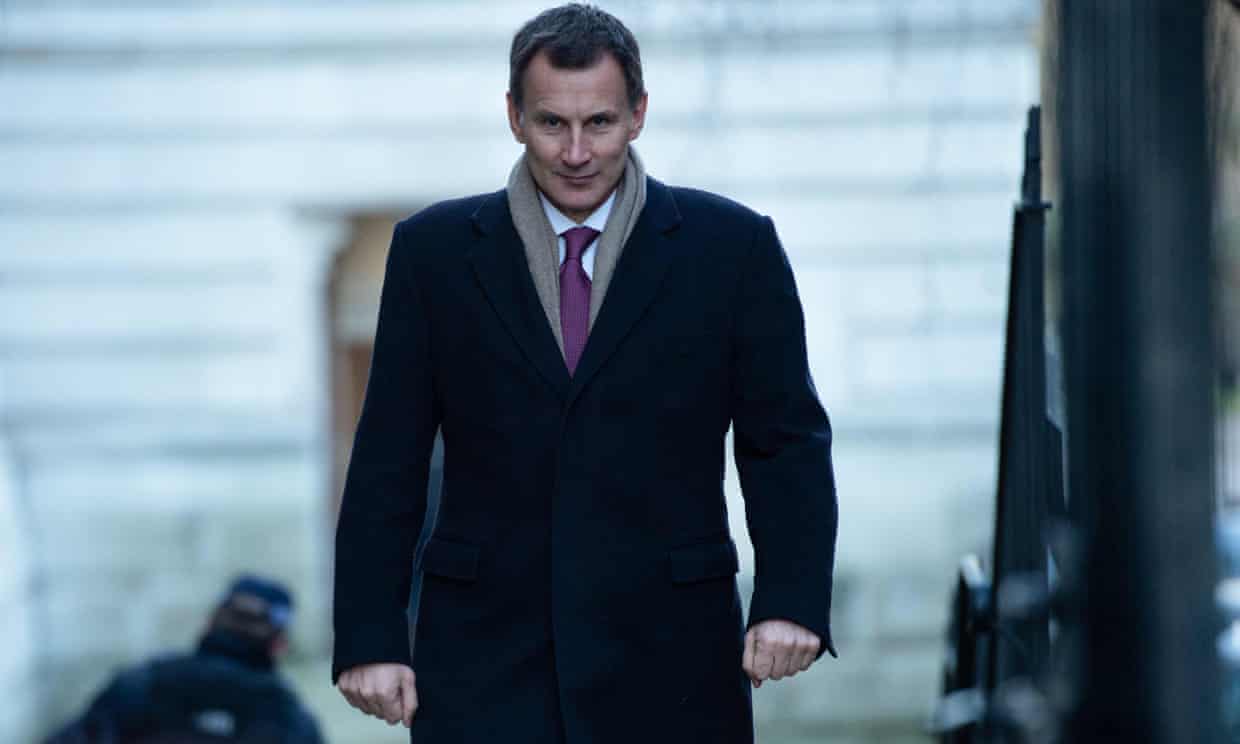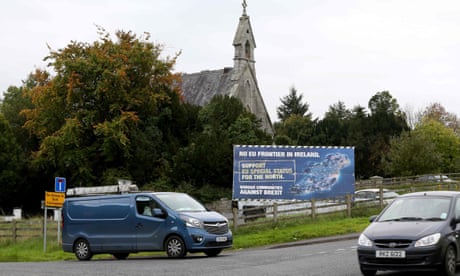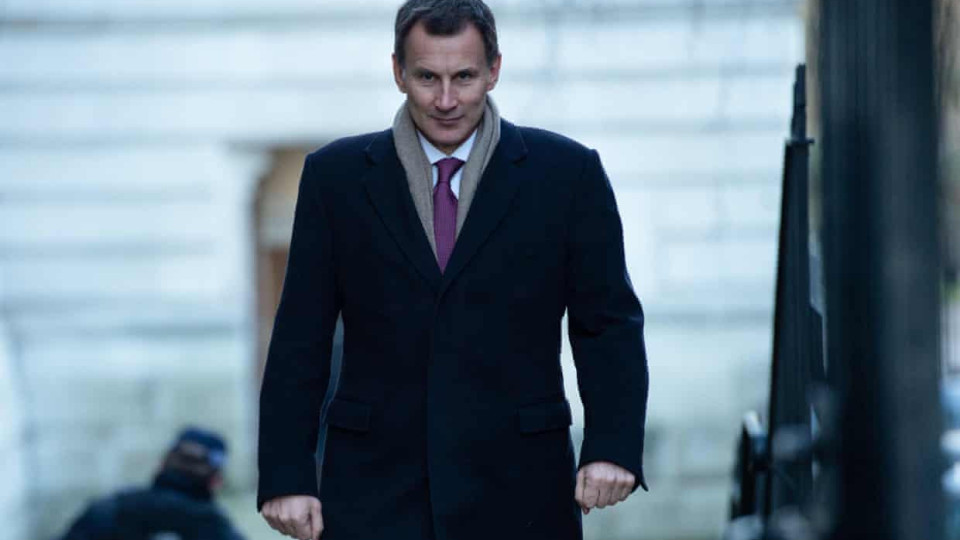
A rejection of Theresa May’s deal could lead to “Brexit paralysis” and prevent the UK from leaving the EU at all, Jeremy Hunt has said.
Such an outcome would be “enormously damaging” for politicians’ relationships with voters and Britain’s global reputation, the foreign secretary said.
“If we were, as a political class, not to deliver Brexit that would be a fundamental breach of trust between the people and the politicians and I think that would be something that we would regret for many, many generations,” Hunt told BBC Radio 4’s Today programme.
He said if MPs voted down the deal the prime minister had negotiated with the European Union, it might not lead to a different type of departure, but rather a process by which Brexit might never happen.
“If this deal is rejected, ultimately what we may end up with is not a different type of Brexit, but Brexit paralysis. And Brexit paralysis ultimately could lead to no Brexit.
“I’m saying this would be [an] incredibly damaging breach of trust and it would also be very bad for Britain’s reputation abroad, having decided to leave the EU, if we in the end for whatever reasons found we weren’t able to do.”
Hunt insisted there was only one issue causing the deadlock over May’s deal and that was the backstop mechanism, designed to ensure there was no return to a hard border on the island of Ireland.

He said the deadlock could be broken if the UK gained legally binding assurances from the EU that the backstop would be a temporary arrangement.
“Theresa May has said she doesn’t just want words. She want something with legal force.”
Hunt joined other senior Conservatives in criticising the Speaker, John Bercow, for allowing MPs to vote on Dominic Grieve’s Brexit amendment in what could ultimately change the course of Brexit.
Bercow had been “willing to frustrate the government at every opportunity”, he said.
Hunt was speaking after his cabinet colleague, Amber Rudd, said she was committed to ensuring the UK did not leave the EU without a deal.
The work and pensions secretary declined three times to say whether she would remain a member of the government if it opted for a no-deal Brexit.
Rudd was speaking as MPs prepared for the third day of debate in the House of Commons before the vote on the withdrawal agreement next Tuesday. The home secretary, Sajid Javid, will open proceedings, which are expected to be dominated by the issue of migration.
Asked whether she believed the UK could thrive after a no-deal Brexit, Rudd said: “This is a strong and great country, we will find a way to succeed, but I do not think that no deal would be good for this country and I’m committed to making sure we find an alternative.”
She said it was right for the government to make preparations for no deal, comparing it with wearing a seatbelt when driving a fast car.
But, she said: “I intend to work with colleagues to make sure we avoid it. I am committed to getting the best outcome for this country, which is supporting the prime minister’s deal.”









Leave a comment